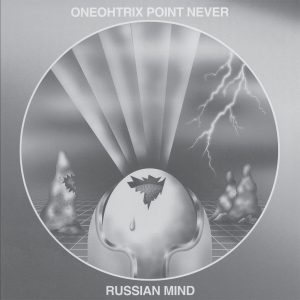I chose Moon Base (1964) by E.C. Tubb because the description on the back:
“Felix Larsen had been sent to Luna Station One to investigate ‘something odd on the Moon.’ There was no proof, not even a concrete basis for suspicion, yet there was a feeling so wrong about the place that Security had hinted of traitors.
On the first day at the sealed station beneath the Moon’s crust, Felix had become violently ill. He awoke from a drugged sleep with no memory of the intervening time lapse. Now he had to be doubly careful because his secret might be out, and somewhere in the station – or somewhere out there on the alien Moon itself – an unknown intelligence was waiting for the critical moment.”
seemed to encompass most of my favorite sf tropes. Knowing that Tubb was writing in the middle of the Cold War, the idea of a double conspiracy set in the bowels of the moon was very promising. Equally endearing was the “Cast of Characters” page, which offered vague but intriguing introductions to some of the characters (ex. “When a man tried to kill her, she laughed it off… he hadn’t succeeded, had he?”).
I’m a little disappointed to say that while Moon Base is far from unreadable, it isn’t the nuanced space-noir I thought it was. Looking into Tubb’s background, I can kind of understand why. He wrote hundreds of novels and short stories from the 1930s up until his death in 2010 (there are some posthumous releases, too) and was never recognized with, like, a Hugo or Nebula or anything like that. There’s very little information about Moon Base; all that I could gather was that it was one of Tubb’s rare standalone books and, according to The Encyclopedia of Science Fiction, “comes as close to Hard SF as [he] was inclined to go.”
Moon Base is (mostly) hard sf and military sf. The story follows Felix Larsen, a spy who has been told he needs to go the Moon because he must investigate what amounts a bad vibe. In this post-space-race era of the Cold War, the four major superpowers – the United States, Great Britain, Russia, and China – have all established their own moon bases. There’s no trust between any of them, and they’re all armed. This is par for the course. While on the Moon, we see Felix adjust to life on the station while undercover. Issues include getting used to the low gravity, the quality of the food, and the uncanny nature of the station’s mini-society. He describes the latter:
“It was, he thought a little like the hive of a colony of ants but without the sharp diversity of types to be found in either. There were men and women, all mature, all apparently-well adjusted. There were scientists and skilled technicians of both sexes. There were soldiers, again of both sexes, but, aside from the insignia on their coveralls, there was no way of telling military and non-military personnel apart. Social barriers simply did not exist.
And, to any psychologist, that was all wrong.”
This is an interesting passage because it lets someone who hasn’t read the book know exactly what its worst aspect is: its very, very in-your-face messaging straight from the author’s own tank of opinions. Tubb was a British man, and Brits, as a group, are really put on a pedestal here. A lot of this is because of the story’s military setting; lots of these characters are old British scientists, old British politicians, or old British space army officers. One character is named actually “Gloria Brittain.” Despite their presence at all levels of the British station, Tubb consistently diminishes Moon Base’s women characters and characters of color. The character introduction from above, for example, is for Shena Dawn, who is one of the five characters listed on that page. She appears for one chapter and does nothing besides almost be killed.
There’s a lot a did like about the book, though. It really started picking up steam plot-wise around the second half – there’s body horror, actual spywork, and an unexpected twist at the very end. And despite its heavy-handedness, I did like how it touched on national sovereignty, technological development, isolation, and radicalization. If you think that sounds like high praise given how much I’ve explained my disappointment, you’re right – none of these topics are presented with any subtlety, but they were unintentionally humorous enough to make me appreciate their inclusion.
I would recommend this book to people who anyone needs to waste two hours (in a good way). For someone who wrote hundreds of books and didn’t particularly care for anything he was writing about in this one, it’s a solid effort. Imagining it as a semi-decent b-movie while reading made for a more fulfilling experience.












